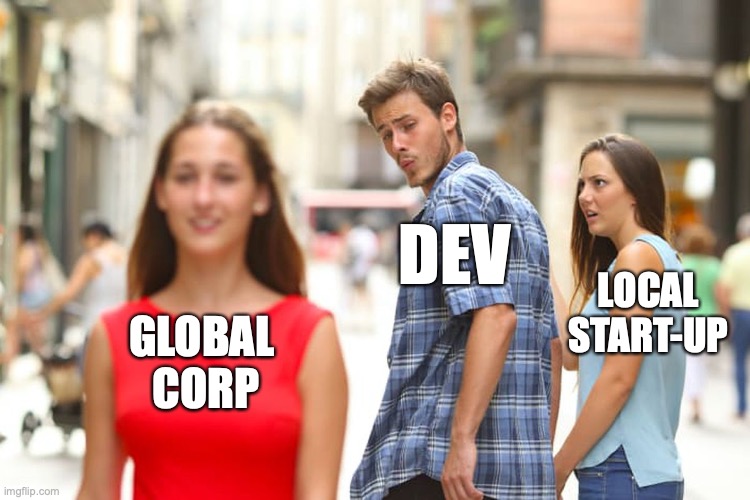Technology sanctions imposed on China are hitting the careers of IT professionals and could cause another shake-up in the electronics market. On the other hand there is still a global shortage of programmers, but recruiters… have to look for a new job for themselves. Well, another ‘ordinary’ week is behind us.
US hits (not only) China
There is no indication that the electronics market will stop facing component shortages in the coming months.The situation is getting tougher and tougher – not longer because of further lockdowns, but because of geopolitics (I know, conspiracy theory enthusiasts will say it is the same thing). Last week, one of the hottest news in our industry was the extension of US sanctions on China. This time they are not only applied to processors, but also to the people who work to improve them…
American coworkers of Chinese companies are to be given a controversial ultimatum – either you change your job or your citizenship. Such a ‘proposal’ affects hundreds of professionals at every level of management.
At the same time, gigantic investments are being made in the US. The ‘CHIPS and Science Act’ introduced in August has given a boost to the new semiconductor factories. The first of these was opened by Intel in September at a cost of USD 20 billion, and part of the funding came from a new subsidy package. Similar investments are planned soon, and factories will be built mainly in the states of Ohio and Idaho.
US sanctions have already gone very far, as they desire to dominate the global semiconductor market. Some electronics manufacturers are tentatively protesting this, fearing the loss of current revenues. Joe Biden and his administration, however, are not changing their minds. According to them, China is using technology developed “civilian” for military purposes, and artificial intelligence algorithms are to be applied on the battlefield or… to fight democracy.

Viewed from this perspective, a very strong bump is to be expected, affecting not only companies working on enterprise solutions, but also consumer electronics, automotive or aerospace. Another blow to globalisation is becoming a reality! Planning to upgrade your hardware? Better hurry up.
Well, unless the Chinese are already much more independent than everyone expects….
Sources:
- https://www.theverge.com/2022/10/7/23392860/biden-semiconductor-chips-intel-micron-china-ohio-science
- https://www.bloomberg.com/news/articles/2022-10-13/biden-chip-export-controls-are-designed-to-give-us-an-advantage
- https://fortune.com/2022/10/13/chinese-americans-china-chip-export-ban-biden-us-semiconductors/

Globalisation will not help with shortage of programmers?
While reading the previous paragraphs, a warning light probably came on for you. As the world’s biggest technology superpowers are closing in on their camps, what fate awaits the global jobs market? The answer is not clear-cut.
While large companies are tapping into the international talent pool, representatives of somewhat smaller companies are having trouble doing so. No, it is not about costs or formal and legal difficulties. Firstly, the competition from Big Tech is really high, and secondly, programmers are in demand in basically every growing market. It is not easy to exploit a niche and be the ‘first choice company’ in your own country, so what could we say about global competition?

Countries where the number of programmers exceeds the current demand of the local market can quickly grow into a leader in outsourcing. Candidates for this title include Nigeria, Turkey or countries in Central and Eastern Europe.
The question is how to bring together programmers and ambitious companies that would like to benefit from remote support? We will try to help through the best remote job offers in Vived app 😉
Source:

Recruiters are being laid off more often than we thought
Whereas programmers have too much work, IT recruiters have to look for jobs for themselves. Unfortunately, things have been heading in this direction for a long time. Layoffs or stalled recruitments in our industry have meant that HR professionals and recruiters have been diverted to other tasks or have had to say goodbye to their companies. Estimates from Layoffs.fyi are staggering and indicate that up to 50% of recruiters may have suffered such a fate. This can be connected with statistics cited by the Interviewing.io blog, which indicate that HR people were dismissed just as often (48%), while many in finance (30%) and operations (24%) and data science (20%) also left their position.

On the other hand, the marketing (13%), product (12%), developer (10%) and sales (4%) teams have been least affected by redundancies in tough times.
As The Protocol reports, after leaving their current company, recruiters are often confronted with the grey reality – much lower rates or a lack of full-time offers. So they opt for salaries as much as 30% lower, just to find any employment in their specialities.
It is very sad to read such information. I hope that next year everything will be back to normal: tech recruiters will again send masses of messages to developers, and developers will (as usual) be able to complain about an overflowing inbox. Dear Past, we all miss you.




